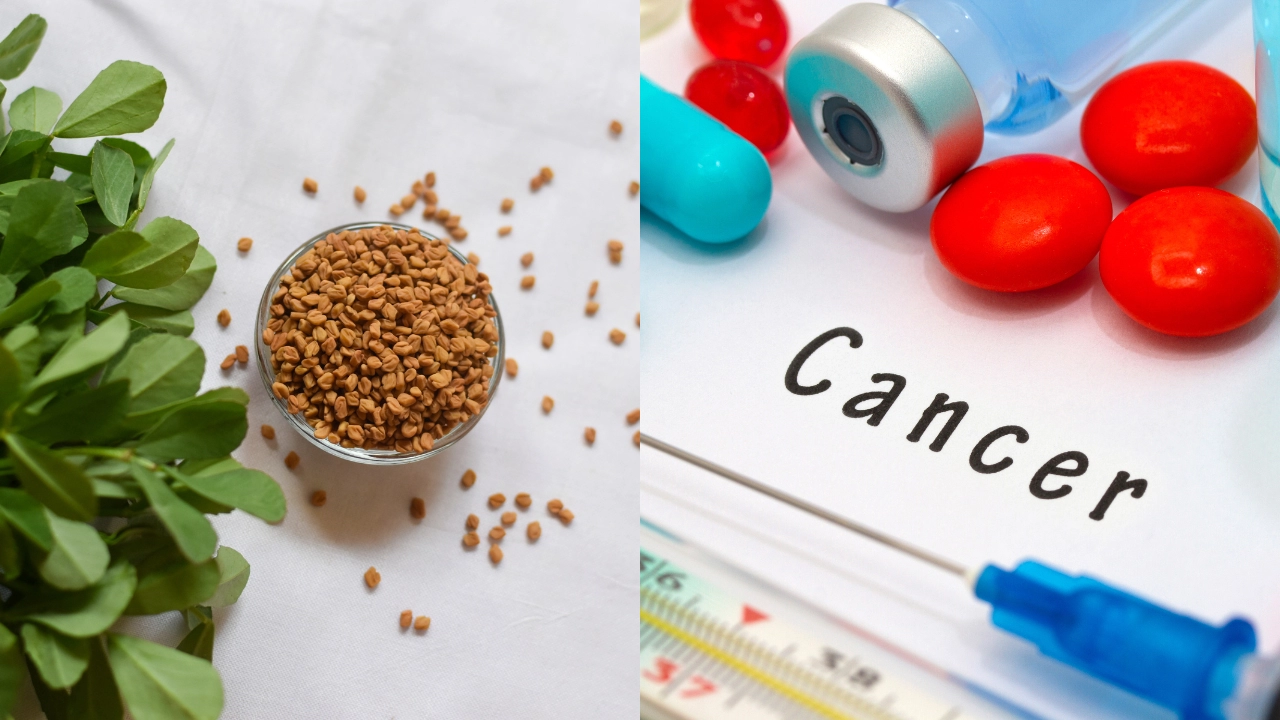Supriya Ramesh • 31 Aug 2024
Could Methi Be a Cancer Fighter? Early Research Shows Promise

Image credit - Canva
Fenugreek, commonly known as methi dana, has long been celebrated for its culinary and medicinal uses, but emerging research hints at its potential role in cancer prevention.
Initial studies suggest that fenugreek may inhibit cancer cell growth and even induce apoptosis (programmed cell death) in cancers such as breast and prostate cancer.
While these early results are promising, experts caution that more human clinical trials are necessary before definitive conclusions can be drawn.
“However, it's essential to note that these findings are primarily from laboratory and animal studies. While promising, more human clinical trials are needed to confirm fenugreek's role in cancer prevention definitively” said Dr Manish Sharma, Sr. Medical Oncologist at Positron Superspeciality and Cancer Hospital, Rohtak, and Medical Oncologist at Cancer Care Clinic, Faridabad.
How is methi helpful in fighting cancer cells?
“Fenugreek seed, or methi dana, is packed with bioactive compounds like saponins, flavonoids, and alkaloids that are believed to possess antioxidant and anti-inflammatory properties. These compounds are crucial in combating oxidative stress—a significant factor in the development of cancer,” said Dr Manish Sharma.
Is it proven that methi is anti-cancerous?
“The term "anti-cancerous" is used for fenugreek due to its content of certain phytochemicals like diosgenin, a steroidal saponin, which has shown potential in reducing cancer cell proliferation and aiding detoxification processes,” said Dr Sharma.
Some preclinical research has highlighted fenugreek's ability to slow down tumour growth and improve the efficacy of conventional cancer treatments. Despite these hopeful results, the evidence is still in its early stages.
“More rigorous clinical trials are necessary to prove fenugreek’s anti-cancer properties conclusively. Thus, while fenugreek could be a beneficial addition to a cancer-preventive diet, it should not be viewed as a standalone solution,” added Dr Sharma.
How often should one consume it?
Incorporating fenugreek into your diet is relatively simple, but moderation is key. Dr. Sharma advised that a typical recommended dose is about 1 to 2 teaspoons of fenugreek seeds or powder per day.
“This amount can be easily included in various meals or taken as a supplement. It’s crucial to avoid excessive consumption, which could lead to potential side effects. Consulting with a healthcare provider is a good idea, especially if you have underlying health conditions or are on medication,” explained Dr Sharma.
What’s the best way to incorporate it into the diet?
Fenugreek can be enjoyed in several delicious ways. Whole seeds can be used in cooking, added to curries, soups, or stews, or used as a spice in various dishes. Fenugreek powder can be mixed into smoothies, yoghurt, or sprinkled over salads.
“For those who prefer a more concentrated form, fenugreek supplements are available but should be taken with medical guidance. One popular method is fenugreek tea—simply steep a teaspoon of seeds in hot water for a few minutes to enjoy its benefits. Adding fenugreek to your diet not only enhances flavour but also offers potential health benefits,” said Dr Sharma.
Get Latest News Live on Times Now along with Breaking News and Top Headlines from Health and around the world.